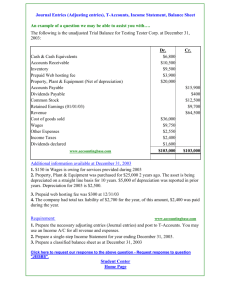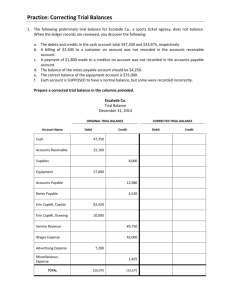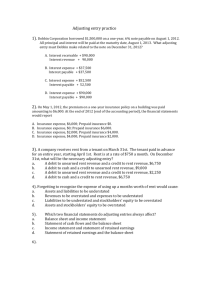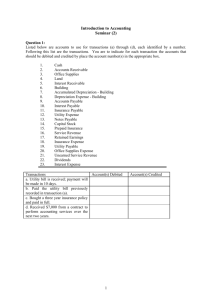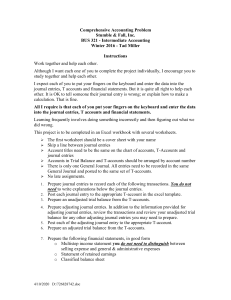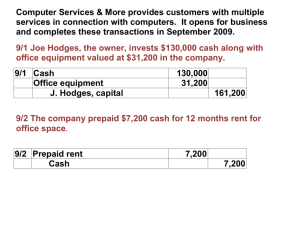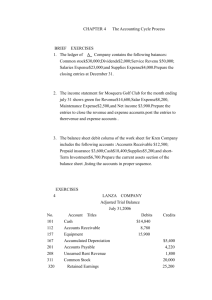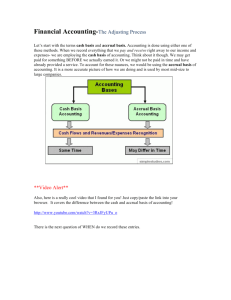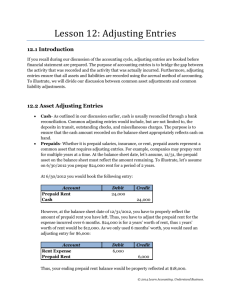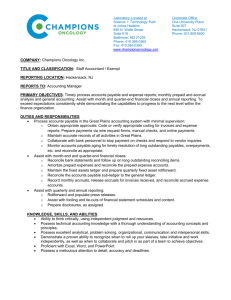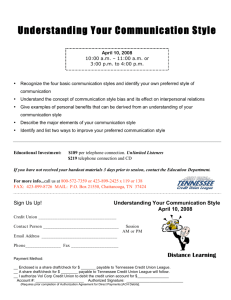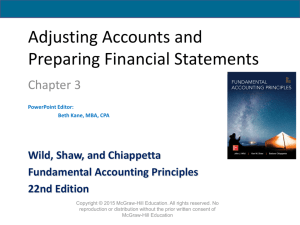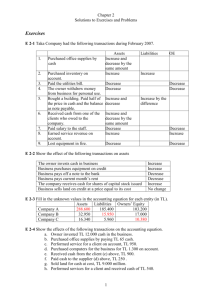MULTIPLE CHOICE
advertisement
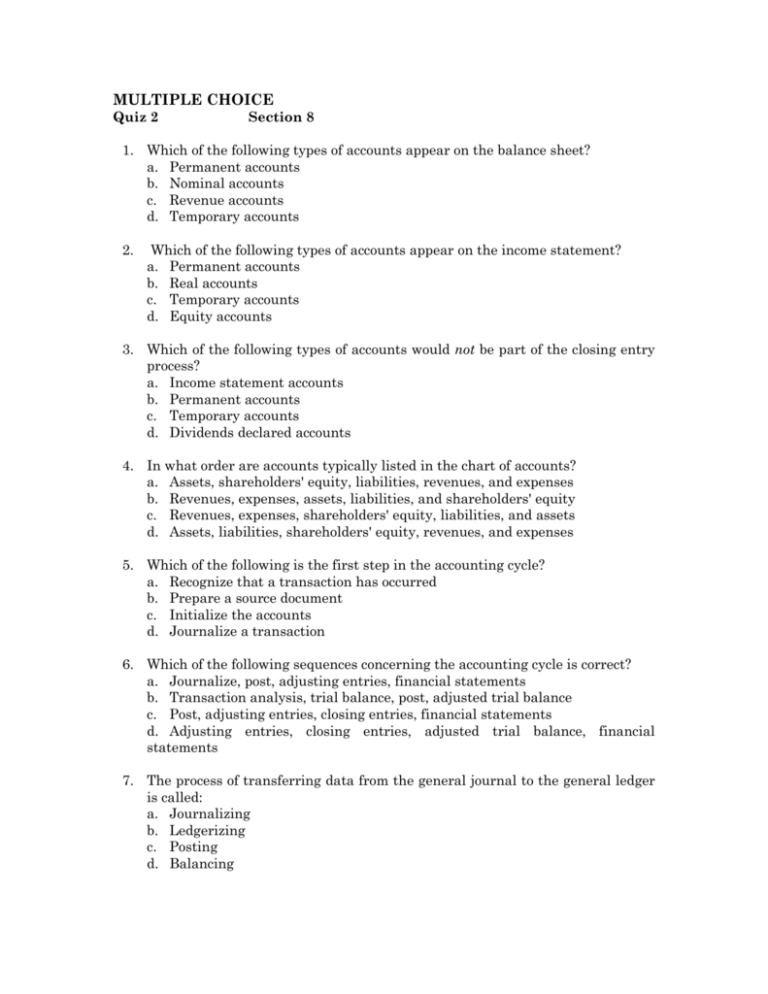
MULTIPLE CHOICE Quiz 2 Section 8 1. Which of the following types of accounts appear on the balance sheet? a. Permanent accounts b. Nominal accounts c. Revenue accounts d. Temporary accounts 2. Which of the following types of accounts appear on the income statement? a. Permanent accounts b. Real accounts c. Temporary accounts d. Equity accounts 3. Which of the following types of accounts would not be part of the closing entry process? a. Income statement accounts b. Permanent accounts c. Temporary accounts d. Dividends declared accounts 4. In what order are accounts typically listed in the chart of accounts? a. Assets, shareholders' equity, liabilities, revenues, and expenses b. Revenues, expenses, assets, liabilities, and shareholders' equity c. Revenues, expenses, shareholders' equity, liabilities, and assets d. Assets, liabilities, shareholders' equity, revenues, and expenses 5. Which of the following is the first step in the accounting cycle? a. Recognize that a transaction has occurred b. Prepare a source document c. Initialize the accounts d. Journalize a transaction 6. Which of the following sequences concerning the accounting cycle is correct? a. Journalize, post, adjusting entries, financial statements b. Transaction analysis, trial balance, post, adjusted trial balance c. Post, adjusting entries, closing entries, financial statements d. Adjusting entries, closing entries, adjusted trial balance, financial statements 7. The process of transferring data from the general journal to the general ledger is called: a. Journalizing b. Ledgerizing c. Posting d. Balancing 8. Which of the following accounts does not have a credit balance? a. Accumulated amortization b. Prepaid insurance c. Accounts payable d. Common shares 9. Which of the following accounts normally has a credit balance? a. Accumulated amortization b. accounts receivable c. Dividends declared d. Rent expense 10. Which of the following accounts does not have a debit balance? a. Cash b. Dividends declared c. Insurance expense d. Retained earnings 11. Which of the following accounts normally has a debit balance? a. Accounts payable b. Retained earnings c. Land d. Sales revenue 12. The purchase of land for cash and the issuance of shares would require which of the following entries? a. Dr. Land, Cr. Common shares, Dr. Land b. Dr. Cash, Dr. Common shares, Cr. Land c. Dr. Land, Cr. Common shares d. Dr. Land, Cr. Common shares, Cr. Cash 13. The sale of merchandise to a customer partly for cash and partly on account would require which of the following entries? a. Dr. Accounts receivable, Dr. Cash, Cr. Sales revenue b. Dr. Cash, Dr. Accounts payable, Cr. Sales revenue c. Dr. Cash, Cr. Sales revenue d. Dr. Accounts payable, Dr. Accounts receivable, Cr. Sales revenue 14. The purchase of land for cash and a 15-year note would require which of the following entries? a. Dr. Land, Dr. Cash, Cr. Long-term note payable b. Dr. Land, Cr. Cash, Cr. Long-term note payable c. Dr. Cash, Cr. Long-term note payable, Cr. Land d. Dr. Land, Dr. Long-term note payable, Cr. Cash 15. When the board of directors declares a $500 dividend, which of the following would be included in the resulting journal entry? a. Cr. Retained earnings b. Cr. Cash c. Dr. Dividends declared d. Dr. Dividends payable 16. When an inventory that cost $80 is sold on account for $100, which of the following would be included in the journal entry recording the cost of goods sold? a. Dr. Cash $100 b. Cr. Cost of goods sold $80 c. Dr. Gross profit $20 d. Cr. Inventory $80 17. Which of the following would cause the trial balance to be out of balance? a. An entry recorded as two debits b. An unrecorded entry c. An entry recorded twice d. An entry recorded to the wrong accounts 18. Which of the following would not cause the trial balance to be out of balance? a. An entry recorded as two debits b. An entry recorded without a debit c. An entry recorded twice d. An entry where the debit and the credit are unequal 19. Which of the following would be the adjusting entry to record accrued interest at the end of an accounting period? a. Dr. Interest expense, Cr. Cash b. Dr. Interest expense, Cr. Interest payable c. Dr. Interest payable, Cr. Interest income d. Dr. Interest payable, Cr. Cash 20. Which of the following would be the adjusting journal entry to expense prepaid rent for the period? a. Dr. Prepaid rent, Cr. Rent expense b. Dr. Rent expense, Cr. Cash c. Dr. Prepaid rent, Cr. Cash d. Dr. Rent expense, Cr. prepaid rent
